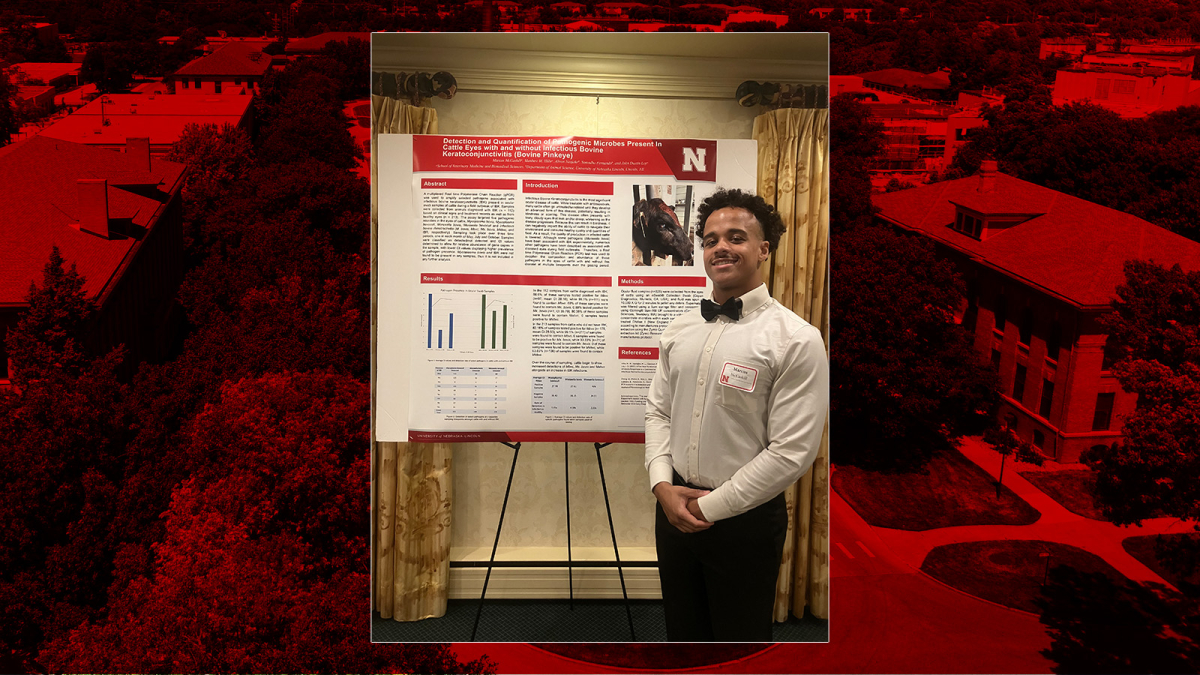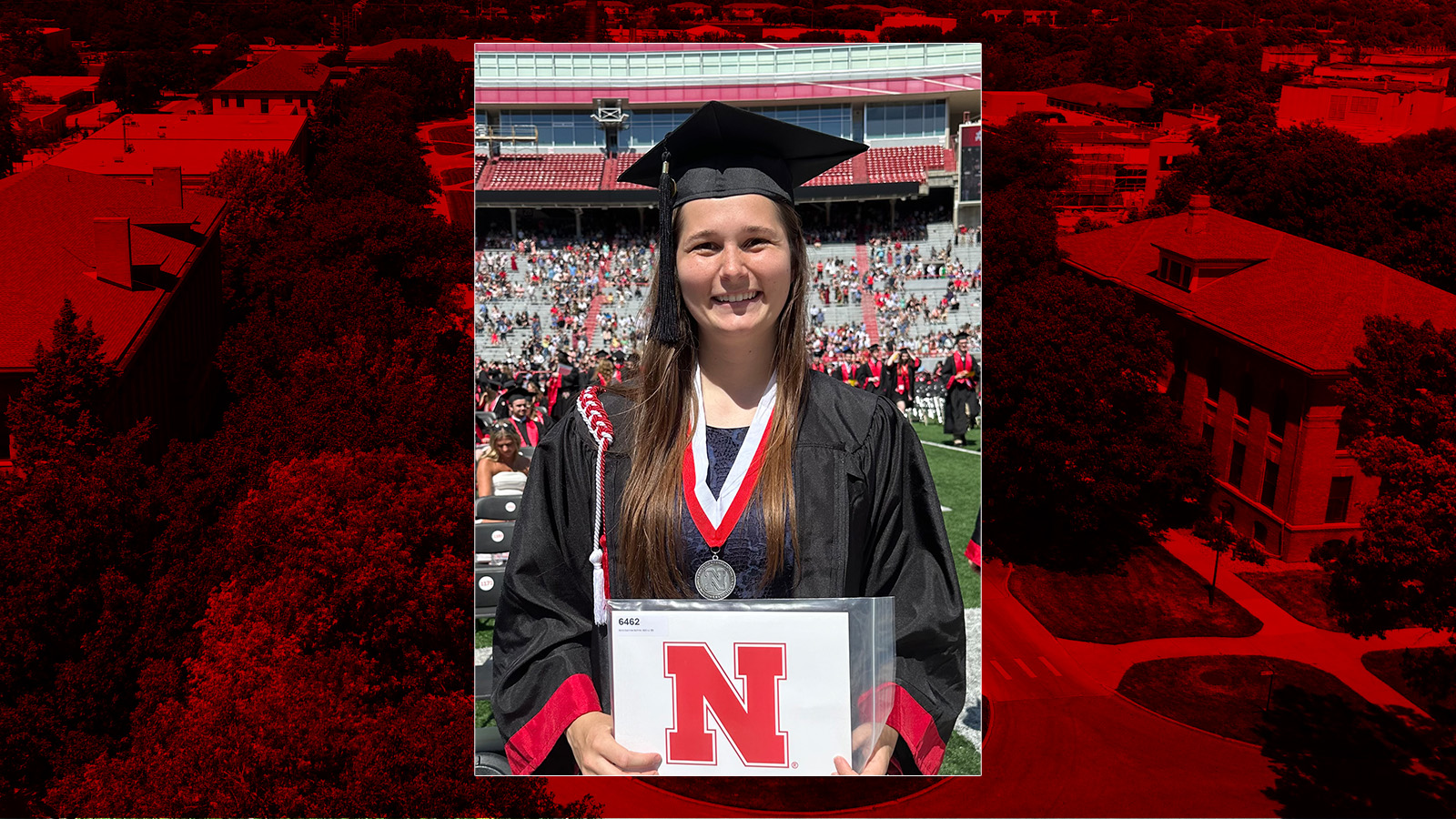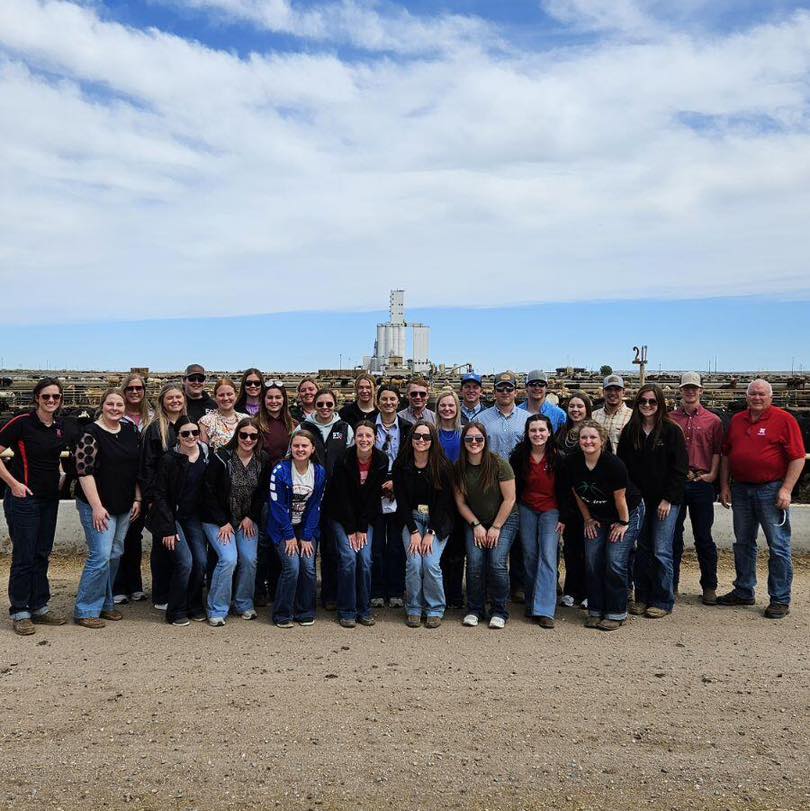
Nebraska Beef Innovators: Marquardt’s research aims to define and evaluate the relationship between cattle handler skill level and safety
University of Nebraska—Lincoln graduate student Morgan Marquardt is researching how to define cattle handler skill level and evaluate whether there is a relationship between handler skill level and handler safety.

Nebraska Beef Innovators: Marcus McCaskill’s research aims to reduce the impact of pinkeye in cattle
University of Nebraska-Lincoln student Marcus McCaskill wants to make pinkeye in cattle a thing of the past. The disease is more than an inconvenience—it costs the beef industry millions of dollars annually.

Nebraska Beef Innovators: Anna Schmit's research on pinkeye in cattle could lead to an improved vaccine
University of Nebraska-Lincoln graduate student Anna Schmit hopes her research on pinkeye leads to an improved vaccine.

Recap: Krutsinger Beef Industry Scholars Study Tour
The Krutsinger Beef Industry Scholars Program minor is open to all students on campus with the goal to develop graduates who will be future leaders of the beef industry. It combines learning opportunities provided by Nebraska beef industry leaders and University of Nebraska-Lincoln faculty. The program was renamed the Krutsinger Beef Industry Scholars Program in March of 2023 in honor of Ron and Carol Krutsinger.

Nebraska team identifies new genetic defect impacting cattle morbidity and meat quality
Cattle have long been a cornerstone of agriculture, providing us with milk, meat, and various other products that nourish and sustain our communities. Ensuring the cattle’s health and optimal muscle development is vital when producing high-quality beef. However, various genetic conditions can disrupt muscle metabolism, affecting animals’ well-being and the quality of the meat they produce.

Research Review: Frequency of DDGS Supplementation Impacts Gains of Yearlings on Grass
A recent study was completed by the University of Nebraska-Lincoln to further evaluate the performance of yearling steers grazing smooth bromegrass pasture supplemented with dry distillers grains plus solubles (DDGS) either daily or three times a week. Steers went to grass in May weighing 700 lb and either received no supplementation, 5.6 lb DDGS daily, or 13 lb DDGS three times a week (dry matter basis) for a 97-day grazing period.

UNL contributes to the identification of new genetic defects in cattle
University of Nebraska — Lincoln researchers have recently identified two new genetic mutations, delayed blindness in Herefords, and bovine familial convulsions and ataxia (BFCA) in Angus cattle.